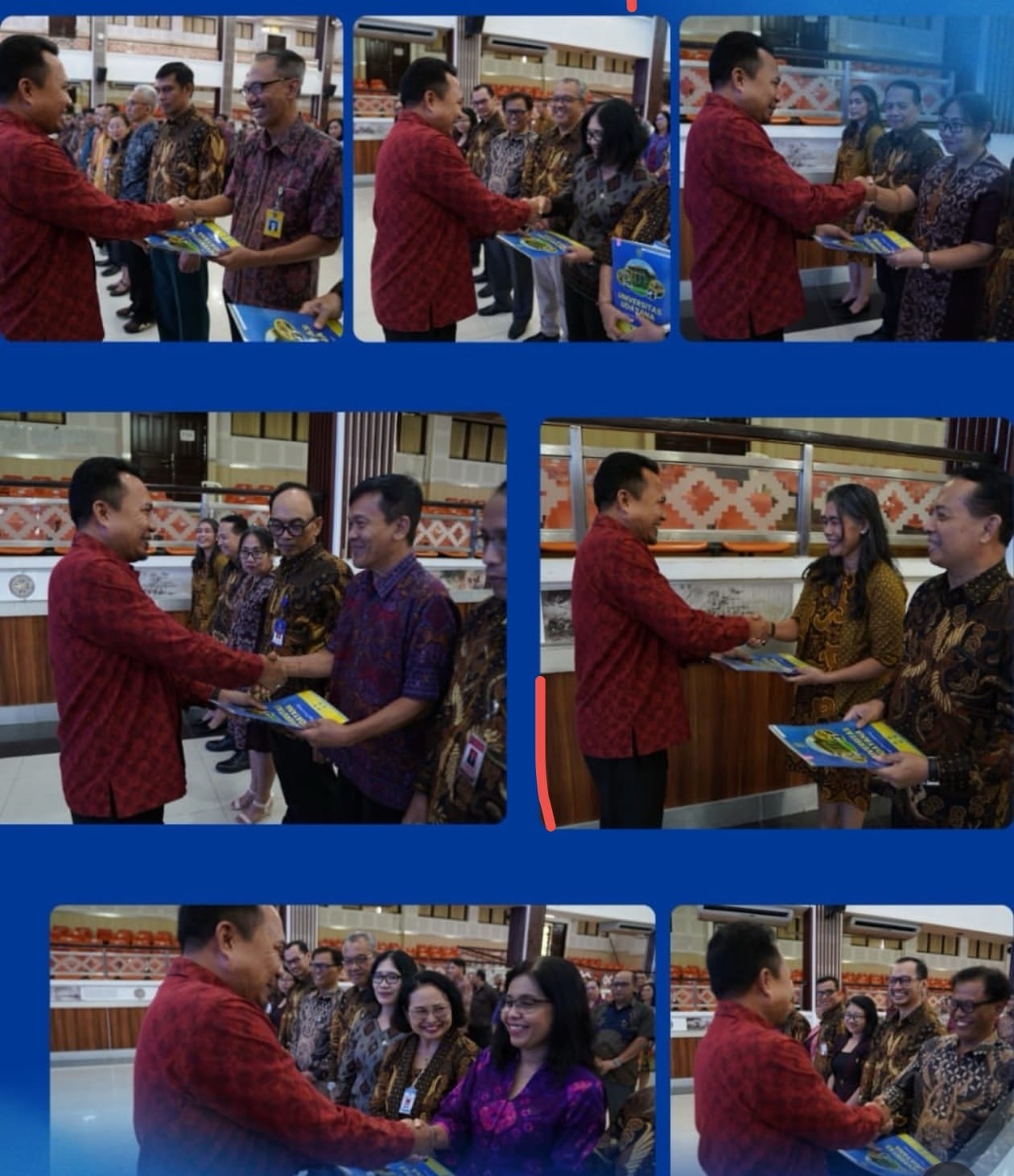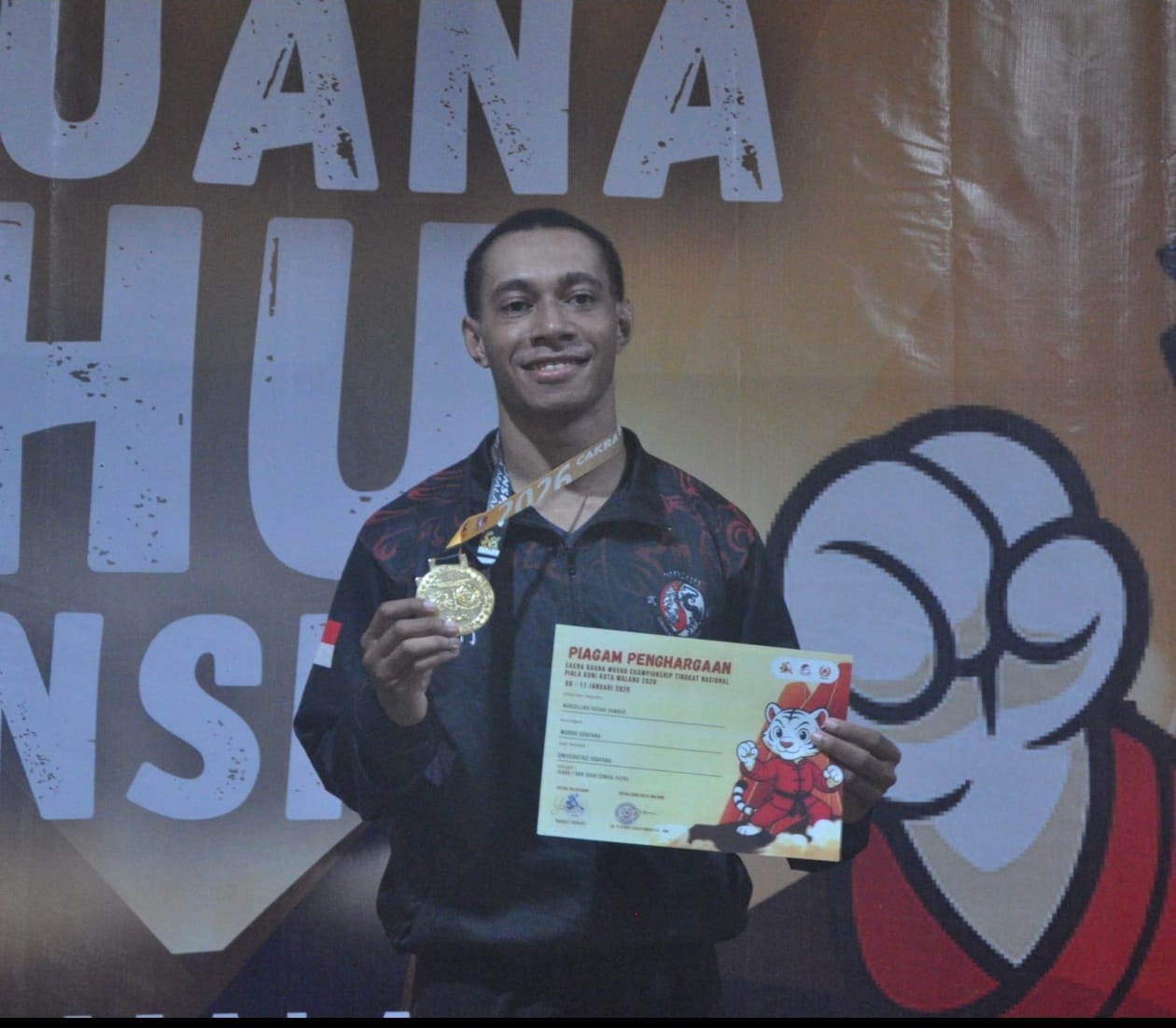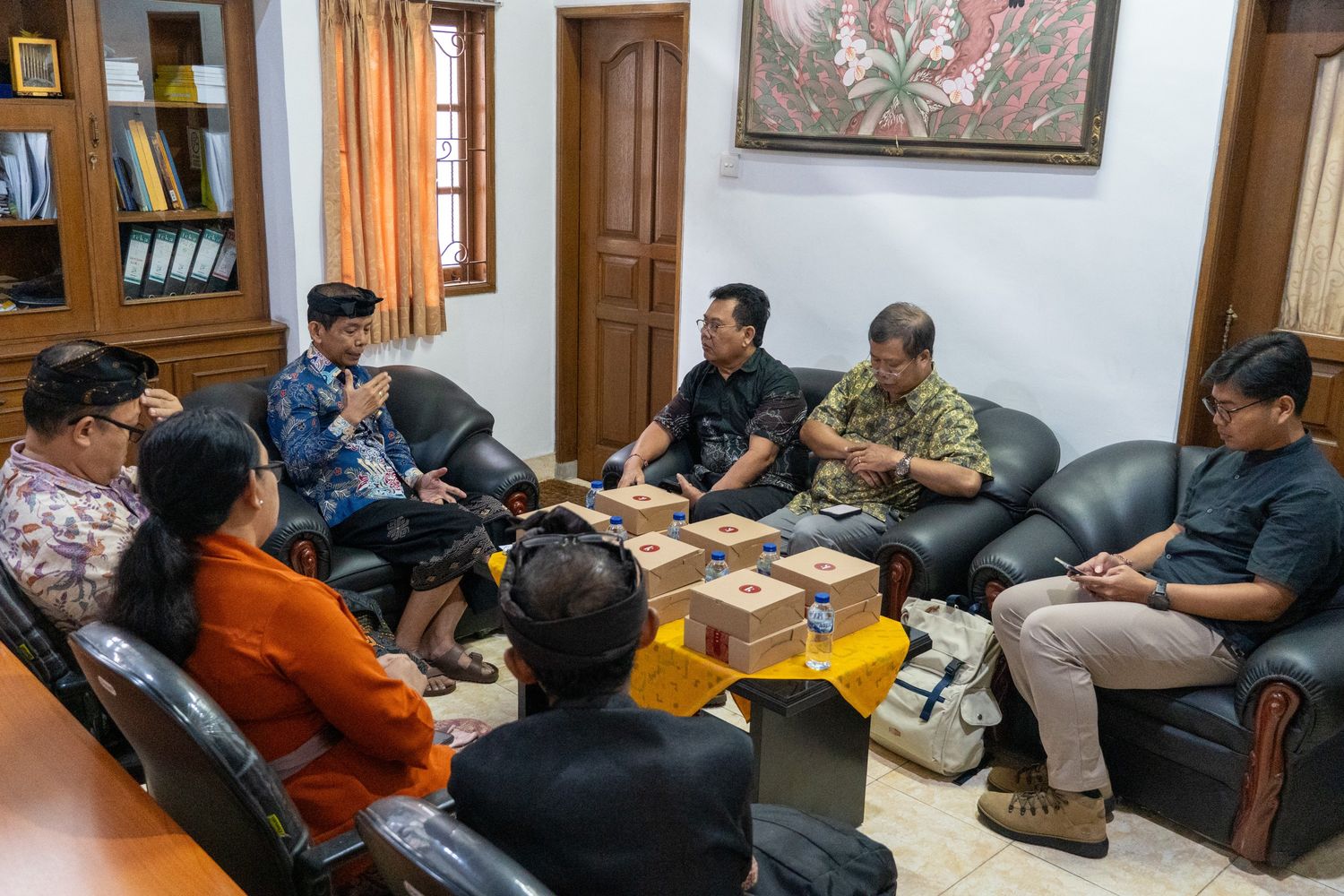As part of BKFIB activities, FIB Unud, in collaboration with the Tsinghua Southeast Asia Center, held an International Conference on Indigenous Wisdom in the Contemporary World
On Thursday, September 4, 2025, the Faculty of Humanities (FIB) of Udayana University (Unud), in collaboration with the Tsinghua Southeast Asia Center and the Journal of Bali Studies, held the International Conference on Indigenous Wisdom in the Contemporary World (CIWCW) 2025 at Awan Auditorium, UID Bali Campus, Kura-Kura SEZ, Serangan. This inaugural conference is designed as an annual forum for academics, researchers, and practitioners from various countries to explore local wisdom and its relevance to contemporary issues. In addition to realizing the collaboration between FIB Unud and the Tsinghua Southeast Asia Center, this event is also part of a series of activities of the BKFIB 2025.
CIWCW 2025 carries the theme "Tri Hita Karana and Sustainability." Tri Hita Karana (THK) is a Balinese philosophy of life that emphasizes harmony in three main relationships: humans with God (parahyangan), humans with others (pawongan), and humans with nature (palemahan). These values are discussed in relation to global sustainability issues, such as the climate crisis, environmental degradation, and social fragmentation, to show that traditional wisdom can be an alternative solution to the challenges of the modern world. This activity presented keynote speaker Prof. Dr. I Made Bandem, MA (Founder of the Widya Dharma Shanti Denpasar Foundation), and was attended by representatives from 12 universities in Bali, 9 universities from various regions in Indonesia, and 12 international institutions from 9 countries: Finland, France, Germany, India, the Philippines, Malaysia, Thailand, the United Kingdom, and the United States. In addition, independent researchers, NGO representatives, and private sector practitioners were also present.
The series of events began with an opening session featuring remarks from Michael Tuori, Chair of the Conference and Academic Director of the Tsinghua Southeast Asia Center; Prof. Ir. I Ketut Sudarsana, S.T., Ph.D., Rector of Udayana University; Dr. Shri I Gusti Arya Wedakarna Mahendradatta Wedasteraputra Suyasa III, S.E.(M.TRU), M.Sc., Senator of the Regional Representative Council (DPD RI) for the Bali electoral district; and a keynote speaker from Bali, a prominent cultural figure who is also the founder of the Widya Dharma Shanti Foundation. The organizing committee chairman, Michael Tuori, emphasized that this conference was born from the belief that Bali possesses invaluable local wisdom to be shared with the world. "Tri Hita Karana is not just a local philosophy, but a path to harmony and happiness that the world desperately needs today," he said. Meanwhile, the Rector of Udayana University conveyed that the discussion of Tri Hita Karana is highly relevant amidst social disruption, natural anomalies, and spiritual crises.
Furthermore, he emphasized three important reasons for this conference: strengthening optimism towards THK values, building social and ecological balance, and supporting the achievement of Sustainable Development Goals (SDGs). The Rector of Unud also emphasized that all educational and community service programs at Unud are based on THK values. The agenda continued with remarks from Dr. Shri I G.N. Arya Wedakarna M. Wedasteraputra S.III, S.E., (M.Tru), M.Sc., who in his remarks also highlighted the role of local wisdom as a pillar of the nation's cultural identity in the era of globalization. According to him, the value of harmony in Tri Hita Karana is an important capital for maintaining cultural resilience while building the foundation of sustainable development. The presence of the DPD RI Bali in this forum is a form of political and cultural support for efforts to preserve local wisdom in the international sphere.
The event featured the keynote speaker, Prof. Dr. I Made Bandem, M.A., a Balinese cultural figure and founder of the Widya Dharma Shanti Foundation. In his presentation, he emphasized that Tri Hita Karana is not merely a spiritual concept but also serves as a concrete manifestation in the practices of Balinese art, culture, and life. He believes these values can serve as global inspiration in designing more humane sustainability strategies. The panel discussion, titled "Beyond the Surface: Decolonizing Academic Approaches to Tri Hita Karana," also featured interdisciplinary academics who critiqued colonial approaches to THK studies. The agenda then continued with a paper presentation session. The topics presented during the paper presentation session varied, ranging from the application of THK in business and tourism practices, public policy governance, to comparisons with local wisdom systems from various countries. Participants were encouraged to not only understand traditional philosophy but also examine how the concept can be operationalized in a modern context.
The conference closed with a speech from Prof. I Nyoman Darma Putra, Ph.D. (Faculty of Humanities, Udayana University) and Nimas Mega Purnamasari (Executive Director of Tsinghua SEA), who also announced that CIWCW 2026 will be held again next year. Thus, CIWCW 2025 not only marks the beginning of an international academic forum but also paves the way for strengthening cross-cultural dialogue and mainstreaming local wisdom as part of global solutions. This conference also collaborates with the Journal of Bali Studies (which has been indexed by Scopus Q1) to publish the papers presented at this conference, in accordance with applicable procedures. Through this activity, it is hoped that greater understanding and collaboration in integrating traditional wisdom into contemporary sustainability practices can continue to be developed and development in Indonesia is culturally rich and spiritually meaningful.



UDAYANA UNIVERSITY